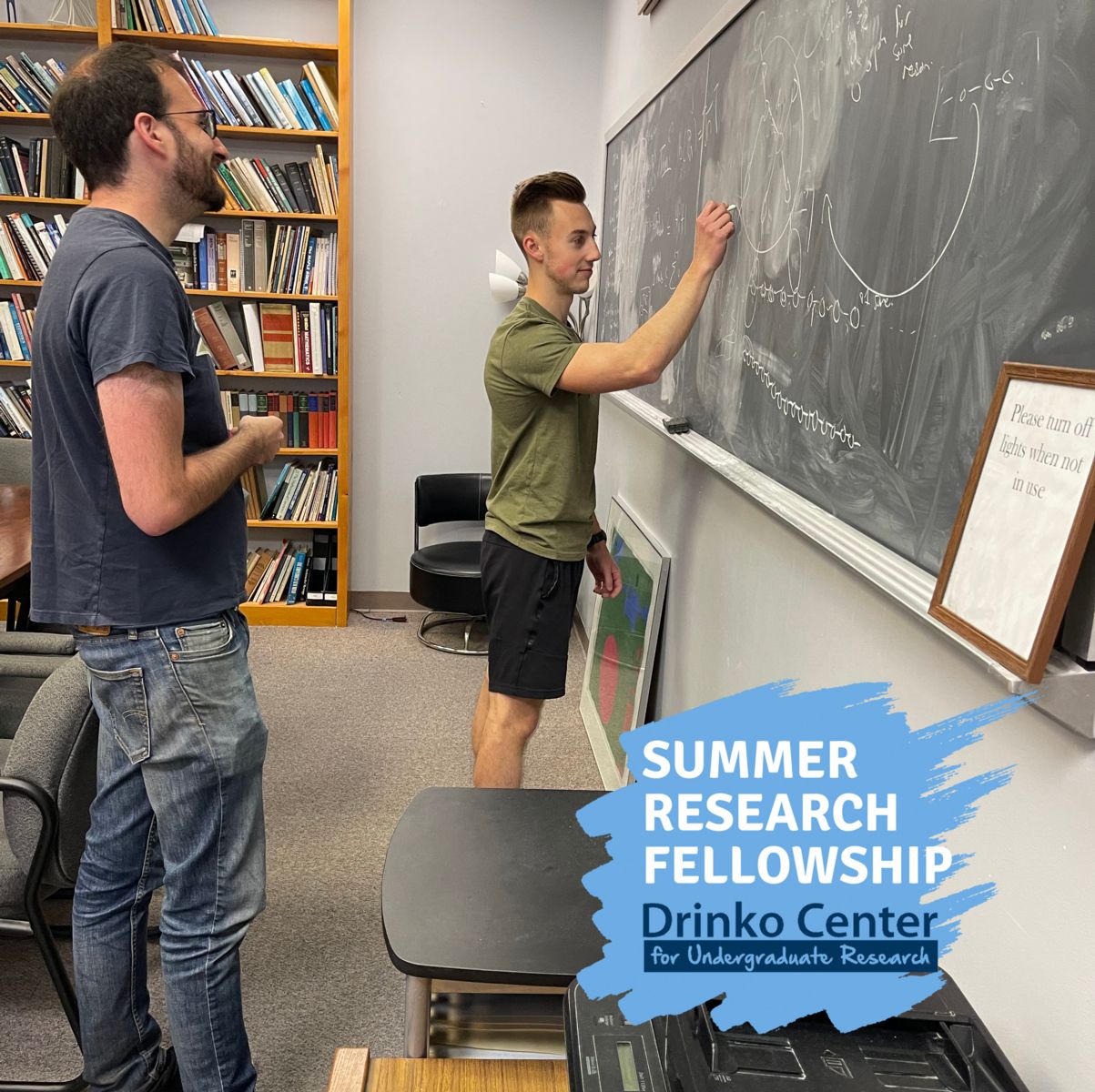News & Events
SUMMER RESEARCH FELLOW: Dane Fasick ’25
Posted on Monday, August 21, 2023
Meet Dane Fasick ’25, one of 10 students selected for a 2023 Summer Research Fellowship. Dane, a junior mathematics major and secondary education minor, is from New Brighton, Pa. He and his faculty mentor, Dr. Adam Blumenthal, assistant professor of mathematics, spent their summer months working on the project “Exploring Total Burning in Graphs.” Outside of the classroom, Dane is a member of the cross country and track & field teams.
 Why did you apply for the Summer Research Fellowship?
Why did you apply for the Summer Research Fellowship?
The past few summers I’d been working some more typical summer jobs, but this year I wanted to do something more related to my future. The Drinko Fellowship caught my eye, partly because I didn’t really know what research was. I asked my advisor about it, and she gave me a loose idea of what math research looks like based on some projects she’d done. The idea of making new mathematical discoveries was what really got my interest. Plus, I thought it was pretty cool I could get paid to do math all summer.
Can you briefly describe your research project?
We explored a process called “total burning” on different types of graphs. A graph is a diagram that models how a network of things, or elements, relates to each other. Total burning is a way to model the spread of influence within that network. We are specifically interested in finding the fastest way to spread influence throughout the entire graph. For example, let’s say I want everyone in my school to know about my new product as soon as possible. Here’s the catch: anyone I tell about it can tell their friends about it, but I can only tell one new person about it each day. Who should I tell on Day 1? Who should I tell on Day 2? Our research helps answer questions like this.
What is your favorite part about research?
My favorite part of research is discovering new things. Even if what we discovered wasn’t particularly difficult to figure out, there is a special feeling that comes with knowing something nobody else ever has.
You collaborated with Dr. Adam Blumenthal. How was that experience and what kind of insight did he offer in your research?
I had a great experience collaborating with Dr. Blumenthal. He made it clear at the beginning that we would be working as colleagues, not as professor and student. That kind of openness made the trial-and-error process very smooth, because I wasn’t nervous about making suggestions. On top of that, Dr. Blumenthal was a great mentor. He taught me the ins and outs of math research and gave me a better understanding of the math research community.
How has your work as a student researcher shaped your student and future career success?
I have learned to be more thorough in my problem solving. Since we are solving problems that nobody actually knows the answers to, we have to constantly question everything we’re doing. How do we know something is true? Is it true in all cases? What if one number was different? This has helped me build a habit of scrutiny that I will take into my theory-based classes. I’ve also gained more self-confidence as a mathematician since I have now made contributions to the math community.
In a more tangible sense, a research paper publication, which is our goal, will help me stand out when applying for internships, jobs or other research opportunities.
What’s been your favorite thing about Westminster?
My favorite thing about Westminster is the community feel. I transferred here from a much larger school, and the first thing I noticed when I got here was how welcoming and friendly everyone was. I think I made more friends in the first week at Westminster than I did all year at my previous school.
What are your future plans?
I have two main career goals post-Westminster. One is to be a math teacher, hence the secondary education minor, and the other is to work for the NSA as a mathematician. I know I want to do both of these things, but I’m still deciding which one I want to pursue right out of college.
To learn more about Westminster’s mathematics major, visit www.westminster.edu/math.
Sponsored by the Drinko Center for Undergraduate Research, Summer Research Fellowships at Westminster College allow students to conduct hands-on research and creative projects under the guidance of our experienced faculty mentors.
More Stories



